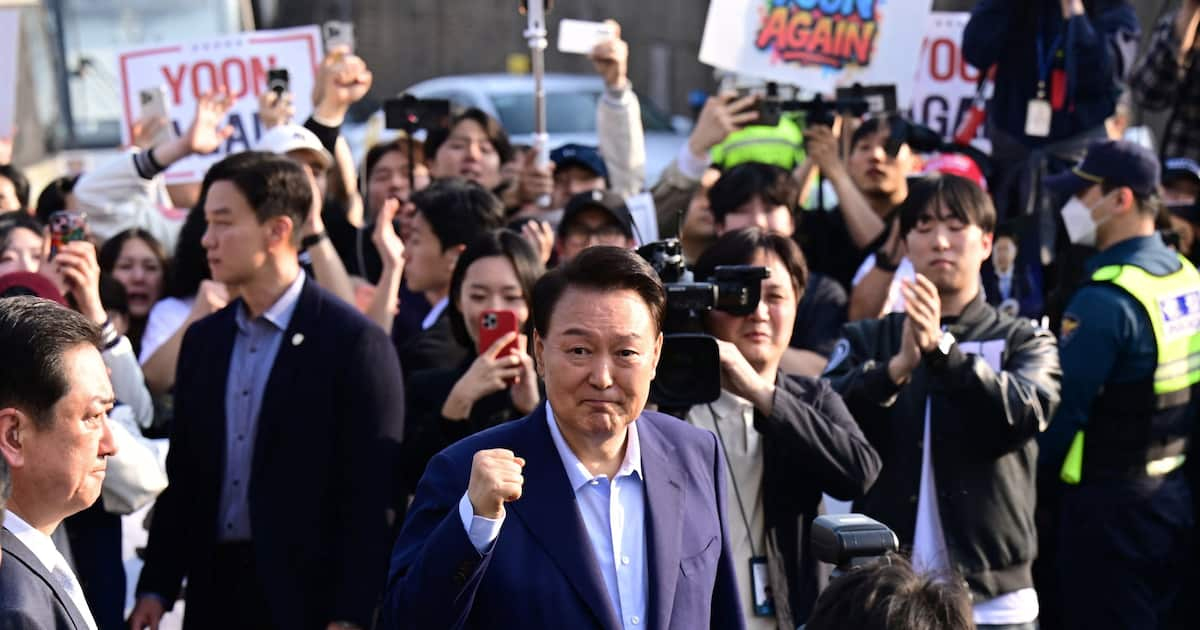Rebuilding Trust: Korean Conservatism's Next Chapter
South Korea's conservative political landscape is undergoing a significant transformation, grappling with the need to rebuild public trust after a period of setbacks and scandals. The recent presidential election results and ongoing political discourse highlight a critical juncture for the movement, forcing a reevaluation of strategies and a renewed focus on core values. This article delves into the challenges and opportunities facing Korean conservatism as it navigates its next chapter.
The Erosion of Trust: A Look Back
The past decade has been challenging for South Korea's conservative parties. Several high-profile corruption scandals involving prominent figures severely damaged public perception and eroded the trust once held by a significant portion of the electorate. This loss of faith wasn't solely attributed to individual failings; it stemmed from a perceived disconnect between conservative values and the evolving needs of the Korean populace.
Key Factors Contributing to the Decline:
- Corruption Scandals: High-profile cases of bribery and abuse of power significantly tarnished the image of conservative politicians.
- Economic Inequality: A growing gap between the rich and poor fueled public discontent, with some criticizing conservative economic policies as exacerbating the problem.
- Generational Divide: Younger generations, exposed to different social and political influences, often showed less affinity for traditional conservative values.
- Lack of Adaptability: A perceived rigidity in addressing social issues and adapting to changing societal norms contributed to the alienation of certain voter segments.
Rebuilding Trust: A Path Forward
Rebuilding trust requires more than just apologies; it necessitates a fundamental shift in approach. Korean conservatives are actively exploring various strategies to regain public confidence:
Key Strategies for Revitalization:
- Promoting Transparency and Accountability: Increased transparency in political processes and a zero-tolerance approach to corruption are crucial to rebuild public trust.
- Addressing Economic Inequality: Developing policies that promote economic fairness and opportunity for all segments of society is essential. This might include focused initiatives on job creation, small business support, and accessible education.
- Engaging with Younger Generations: Conservatives must actively engage with younger voters, addressing their concerns and adapting their messaging to resonate with their values and priorities. This includes utilizing modern communication tools and platforms.
- Modernizing the Party Image: The conservative movement needs to project a more modern and inclusive image, moving beyond traditional stereotypes and embracing diversity. This includes actively promoting women and minority voices within the party.
- Focus on Core Values with a Modern Twist: While upholding traditional values like family and national security, conservatives need to reframe their message in a way that aligns with contemporary societal concerns, such as environmental protection and technological advancements.
The Role of Youth and Inclusivity
The future of Korean conservatism hinges on its ability to attract and empower younger generations. This necessitates a more inclusive party structure, actively recruiting and promoting young leaders who can bridge the generational gap and bring fresh perspectives. Inclusivity extends beyond age, encompassing diversity in gender, ethnicity, and socio-economic backgrounds.
Challenges and Opportunities
The path to rebuilding trust is not without its challenges. Deep-seated political divisions and the constant pressure of competing ideologies make the task complex. However, the opportunity for genuine reform and renewal exists. By embracing transparency, addressing economic concerns, and engaging with younger generations, Korean conservatism can chart a course towards a more vibrant and inclusive future.
Conclusion: A New Era for Korean Conservatism?
The future of Korean conservatism remains uncertain. However, the current focus on rebuilding trust represents a crucial turning point. Success will depend on the movement's ability to adapt, innovate, and genuinely engage with the concerns of the South Korean populace. The path ahead is challenging, but the potential for renewal and a new era of trust is undeniably present. The coming years will be pivotal in determining whether Korean conservatism can successfully navigate this critical juncture and reclaim its place in the nation's political landscape.
Keywords: Korean Conservatism, South Korea Politics, Political Reform, Public Trust, Election Results, Economic Inequality, Generational Divide, Political Strategy, Youth Engagement, Inclusivity, Corruption, Transparency, Accountability.
